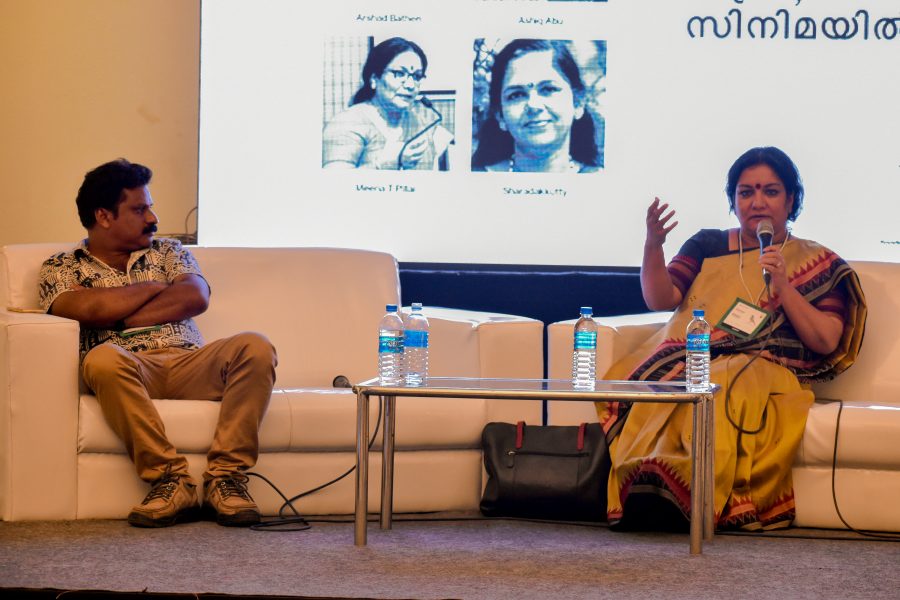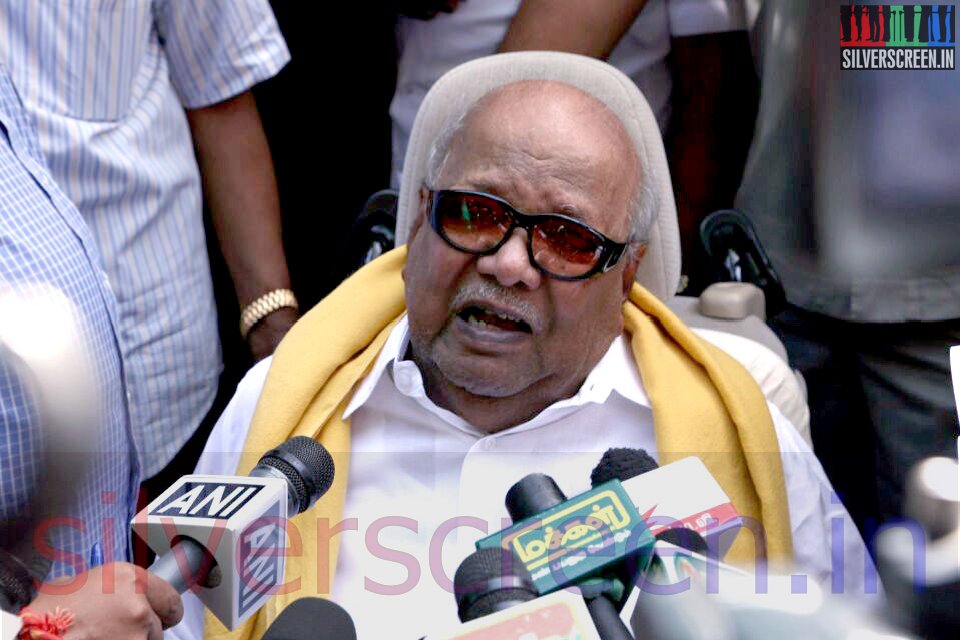The brutal murder of Aswini in Chennai by her stalker has once again brought focus on how women are portrayed in cinema and the kind of roles actresses are offered. Ever since the sexual misconduct of Hollywood producer Harvey Weinstein came to light, the discussion around the world has been on better gender representation, not just for actresses but also in the technical departments.
At the Krithi International Literary Festival, writer and noted women’s rights activist Dr Meena T Pillai and Malayalam short story writer Arshad Bathery talked about the depiction of women in cinema and the need for a revival movement.
“It’s always been the habit of every Malayali to comment more on the female actor than the movie itself. They start analysing the female actor as soon as they step out of the theatre,” said Pillai. Talking about the status of women in cinema, she pointed out how women are always stereotyped.
Arshad Bathery, a short story writer from Kerala who recently published the autobiography of adult actress Shakeela said, “Women in cinema are entirely different from the women in real life. These female characters are not relatable. The actor dedicates her body and mind to capture the essence of what the scriptwriter has written.”
Talking about the life and times of Hollywood actress Marilyn Monroe, Bathery said, “Marilyn was an icon in Hollywood and in the fashion industry. Despite dominating the industry and being at the peak of her career, she was labelled as a Communist and a spy for the Russians by the male society.”
Referring to Mohanlal’s proposal scene in Narasimham, where the actors says, “Whenever I come home drunk, I need a girl just to kick around. Someone with whom I can make love under a blanket on a rainy day, someone who can carry and deliver my children and finally when I am dead and my deceased body turns into ashes, I need a girl to cry thinking about me. If you are okay with all this…hop in,” Pillai says though it is considered as a funny scene, but on the subtextual level it is deeply misogynistic and marginalising.
When asked whether one should protest against the director’s vision in the name of feminism? Bathery argued that it’s not always the problem with the director, but also from which perspective the audience watches the film. Even women don’t spare other women with their negative comments and judgement. “This attitude should change, not the director’s vision or his cinema,” Bathery said.
On Shakeela viewed as a sex symbol by the patriarchal society, Pillai said, “A period in which Malayalam cinema was struggling to survive, it was Shakeela and her movies which brought the money. She utilised the innermost desires of the male audience and the hypocritical society fell for it. We should all think about the values which we hold for and against women in films and society.”
Recommended
She further explained that a female character is dedicated to make the hero look good. She doesn’t have any other purpose in life. “We don’t have any independent women character. We don’t have any women characters who fight physically and emotionally against the rage of a male character. Actresses are still objectified for commercial purpose.”
To break the male dominance in the industry, Pillai urged new women filmmakers to make movies based on true emotions and the plight of a woman. “I believe that every woman has a story to tell.”
Bathery’s message to the women filmmakers: “Maybe your films will get categorised under feminism but never mind it, there are people who will always be interested.”
Image Courtesy: Varun Gopalakrishnan



